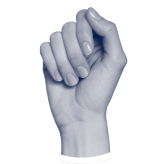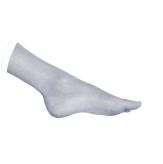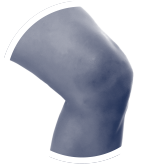
In the world of sports, both recreational and professional athletes experience physical and mental demands that can take a toll on the body and mind. Among these challenges, stress stands out as a key factor that influences performance and risk of injury. Although stress is often seen as purely psychological, its effects extend deep into the physical realm, particularly in increasing susceptibility to sports injuries.
Many sports injuries occur due to physical factors, such as a mistimed tackle in football to a poor landing in gymnastics. From an outside perspective, many injuries may seem accidental. However, once you start looking more closely at the psychology of those involved in these accidents, then maybe some of those accidents or injuries were down to individual coping mechanisms to stress, rather than pure chance.
Understanding and managing stress can help in both enhancing performance and reducing injury risk.
What Is Stress?
There are two types of stress – acute and chronic.
Acute stress is the most common form of stress and is commonly referred to as ‘on the spot’ stress. Your body is flooded with hormones in response to an immediate situation – also known as the fight or flight response. These can range from something at work, like having to do a presentation, to having to step up and take a penalty in a football match.
Acute stress can be thrilling and alerting in the short term but can be exhausting if experienced repeatedly or for prolonged long periods.
Chronic stress is not thrilling. It is the stress that is a constant in someone’s life, such as a difficult boss at work, an unhappy relationship, worrying about being dropped from a team, or the pressure of constantly having to perform at a high level.
It is the stress that can lead to serious health consequences if not properly treated.
How Does Stress Affect the Body in Sports?
As previously stated, stress activates the body’s “fight-or-flight” response, releasing hormones like adrenaline and cortisol that prepare the body to handle immediate challenges. While helpful in short bursts, prolonged or excessive stress can disrupt the body’s equilibrium, leading to adverse effects that impact athletic performance and health:
- Increased Muscle Tension: Chronic stress causes muscles to remain tense, increasing the risk of strains, sprains, and other soft tissue injuries, especially in high-impact or repetitive-motion sports.
- Delayed Recovery and Healing: Elevated cortisol levels associated with stress suppress immune function and slow down recovery times. This can be particularly harmful when an athlete is recovering from a prior injury, as stress impedes the healing of tissues and overall muscle repair.
- Reduced Focus and Reaction Time: Stress and mental fatigue diminish cognitive functions, reducing athletes’ ability to focus and react quickly. This increases the risk of accidents and mishaps, particularly in dynamic sports that demand split-second decisions.
- Weakened Immune System: Chronic stress weakens the immune system, making athletes more susceptible to illnesses and reducing their resilience in training. Illness not only disrupts training schedules but can also delay injury recovery and overall athletic development.
How Acute Stress Can Lead to Sports Injuries
Those who have a low threshold to stress will respond more negatively to its symptoms. Even a small stimulus of stress may cause an increase in anxiety.
For some people this causes a drop in concentration and makes it hard to react quickly, making them more susceptible to getting injured.
In competitive settings, stress can also drive athletes to take on more aggressive or risky manoeuvres. which may result in risk-taking, again increasing the chance of injury. For instance, a football player might go for an especially challenging tackle, or a cyclist might try to push their limits around a corner in poor weather conditions. In these cases, stress alters decision-making, clouding judgement, and increasing impulsivity, which raises the likelihood of accidents or collisions.
How Chronic Stress Can Lead to Sports Injuries
When under stress, athletes may experience heightened levels of anxiety and urgency, sometimes leading them to take risks they would otherwise avoid. This is particularly common when athletes feel pressure to perform, recover quickly, or meet specific targets—whether personal, team-related, or competitive. Stress-induced risk-taking can manifest in several ways, each of which increases the potential for injury.
- Pushing Through Pain or Fatigue
Stress can cloud an athlete’s judgement, making them more likely to ignore pain or fatigue signals. Driven by the pressure to maintain performance or avoid disappointing others, athletes may push through pain, which can exacerbate minor injuries and lead to more severe issues like muscle tears, stress fractures, or ligament damage. When recovery and rest are neglected, even a minor injury can become a major setback.
- Overtraining and Ignoring Rest Days
For athletes, especially those balancing demanding schedules or those feeling pressure to meet fitness goals, stress can lead to overtraining. Ignoring the body’s need for recovery disrupts the healing process and places undue strain on muscles and connective tissues. Athletes who skip rest days risk burnout, compromised immune function, and increased likelihood of chronic injuries like tendonitis or stress fractures.
- Taking Risks with Form and Technique
Stress can make athletes prioritise speed and intensity over form, which can be a recipe for injury. For example, rushing through training sessions or trying to keep up with teammates or competitors can result in compromised form, especially during weightlifting, high-intensity interval training, or skill-based exercises like tackling or cutting. Small lapses in technique due to stress-driven haste or distraction increase the risk of injury from improper movements.
- Ignoring the Importance of a Gradual Return to Sport
Following an injury, stress to “return to play” quickly can lead athletes to resume intense activity without proper rehabilitation or conditioning. This can put them at risk of re-injury or of sustaining a new injury. Pressure from external expectations—whether from coaches, fans, or even oneself—can lead to skipping key stages of rehab or returning at a higher intensity than is safe.
Managing Stress to Reduce Injury Risk & Enhance Performance
Stress management is an important skill for athletes to protect their physical and mental well-being. Effective stress reduction techniques vary between individuals but often incorporate a combination of mental, physical, and lifestyle-based approaches. Here are several strategies that athletes—both recreational and professional—can use to stay on top of their game:
- Mindfulness and Meditation Practices
Mindfulness practices such as meditation, deep breathing exercises, and progressive muscle relaxation have been shown to lower cortisol levels and reduce anxiety. By incorporating these techniques into their routine, athletes can cultivate a calmer, more focused state, which enhances both performance and resilience to injury.
- Optimised Sleep
Sleep plays a crucial role in mental and physical recovery, especially under stress. By prioritising regular sleep patterns, minimising blue light exposure before bed, and creating a relaxing pre-sleep routine, athletes can boost recovery, maintain sharp mental focus, and minimise the risk of injuries related to fatigue.
- Building a Support Network
Athletes should not underestimate the power of a strong support system, whether it involves a coach, teammates, family, or friends. Support networks help athletes navigate challenging times, providing motivation, perspective, and a safe space to talk about stressors.
- Realistic Goal Setting
Setting achievable and realistic goals helps athletes manage expectations and prevent undue stress. Whether training for a recreational event or a high-stakes competition, goals should align with the athlete’s current physical condition, time availability, and long-term health priorities. Realistic goals reduce the risk of overtraining and help maintain consistent progress without unnecessary strain.
- Cross-Training and Rest Days
Overtraining is a common cause of stress in athletes. By incorporating varied physical activities, athletes can engage in cross-training to avoid repetitive strain on specific muscle groups. Rest days are equally crucial for recovery, allowing muscles and connective tissues to repair and adapt to the stresses placed upon them.
- Nutrition and Hydration
A balanced diet is essential to managing stress and optimising recovery. Nutrient-dense foods support immune function, and adequate hydration keeps muscles and joints functioning smoothly. Additionally, certain foods, such as those rich in omega-3 fatty acids, magnesium, and antioxidants, can have stress-reducing effects on the body.
Embracing Stress as a Tool for Growth
Stress, when managed effectively, can even serve as a tool for growth. The mild stress experienced during training prepares the body for the physical challenges of competition, allowing the athlete to become more resilient over time. By consciously managing stress, athletes can transform potential risks into opportunities for improvement, ultimately enhancing both performance and longevity in their sport.
If you have sustained a sports injury please get in touch with our team at London Bridge Orthopaedics. All our consultants regularly see sports men and women and they can offer expert assessments and treatment for a wide range of acute and chronic sports injuries.
Follow London Bridge Orthopaedics for the latest health and orthopaedic news on Facebook, Twitter and LinkedIn.









